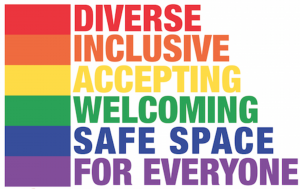You’ve worked hard for your career, perhaps spending years obtaining advanced degrees and climbing the corporate or government ladder of success. However, even though you’ve arrived at a respectable position, you might still feel as though you are being treated differently from your peers in the workplace. Is it possible you are suffering from workplace discrimination?
Remember that discrimination can come in various forms, both subtle and overt. Discrimination can be based on your gender, sexual orientation, race, national origin, religion, age, disability and more. Examples of discrimination include receiving unequal pay for equal work, being assigned work duties based on your gender, being exposed to sexual or crude jokes and comments in the workplace and much more.
First Step: File an Internal Complaint
If you are experiencing workplace discrimination, you may not feel comfortable making a complaint. This is especially true if your supervisor is the one who is discriminating against you. However, making a complaint is crucial to the success of any future legal case you may have. The law expects that employers who are notified of discrimination in their workplaces have an opportunity to fix the bad behavior. Plus, if you are treated any differently after you make a complaint, this could be a sign of retaliation, another form of unlawful employment practices.
If you are not sure how to make a complaint, contact your human resources department right away. Follow the steps of the formal complaint process. Be sure to make your complaint in writing and retain copies of all complaints you submit. Also, document your employer’s response to the complaint. Did they take any action? Ignore your complaint? Write it down in a personal journal in detail.
Second Step: File a Complaint with the EEOC or Similar State-Level Agency
You have a limited number of days to make a formal complaint with the Equal Employment Opportunity Commission, or the corresponding state-level agency. In DC, this agency is called the Office of Human Rights. For most claims, you must file a formal complaint within 180 days of the discriminatory act(s) at the EEOC or within 300 days at your state-level agency. For federal employees, the time limit is only 45 days and the claim must be filed with the agency’s internal EEOC office.
If you fail to file within the time limit, you will lose your chance to bring this case in court and therefore you will lose your chance to hold your employer accountable for the discriminatory behavior. This means you cannot recover monetary damages and your employer may not ever stop the discriminatory behavior.
Experiencing Employment Discrimination? Call an Experienced Employment Attorney
The lawyers of Dhali P.C. have over 10 years of experience protecting the careers and the rights of employees against discriminatory employers. Think you may have a case, but aren’t sure? Visit www.dhalilaw.com to schedule your free phone consultation. Dhali P.C. will help you evaluate your case and give you valuable advice for your next steps.




